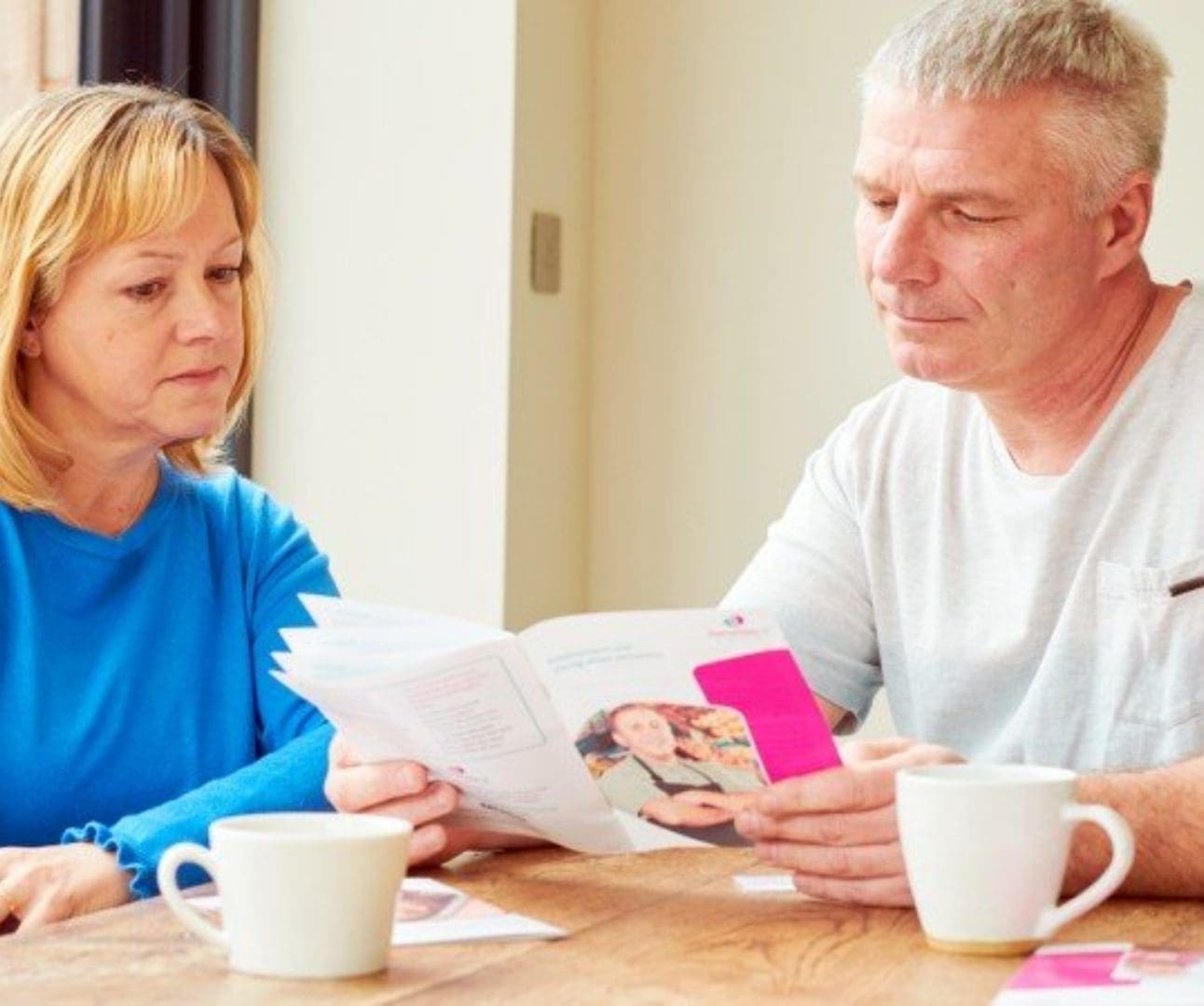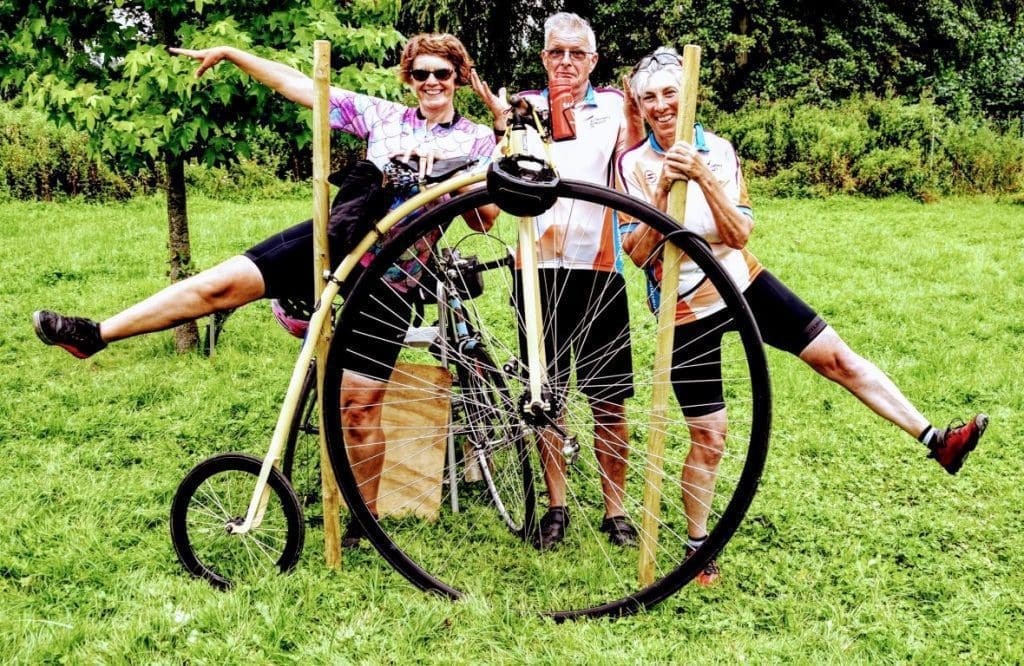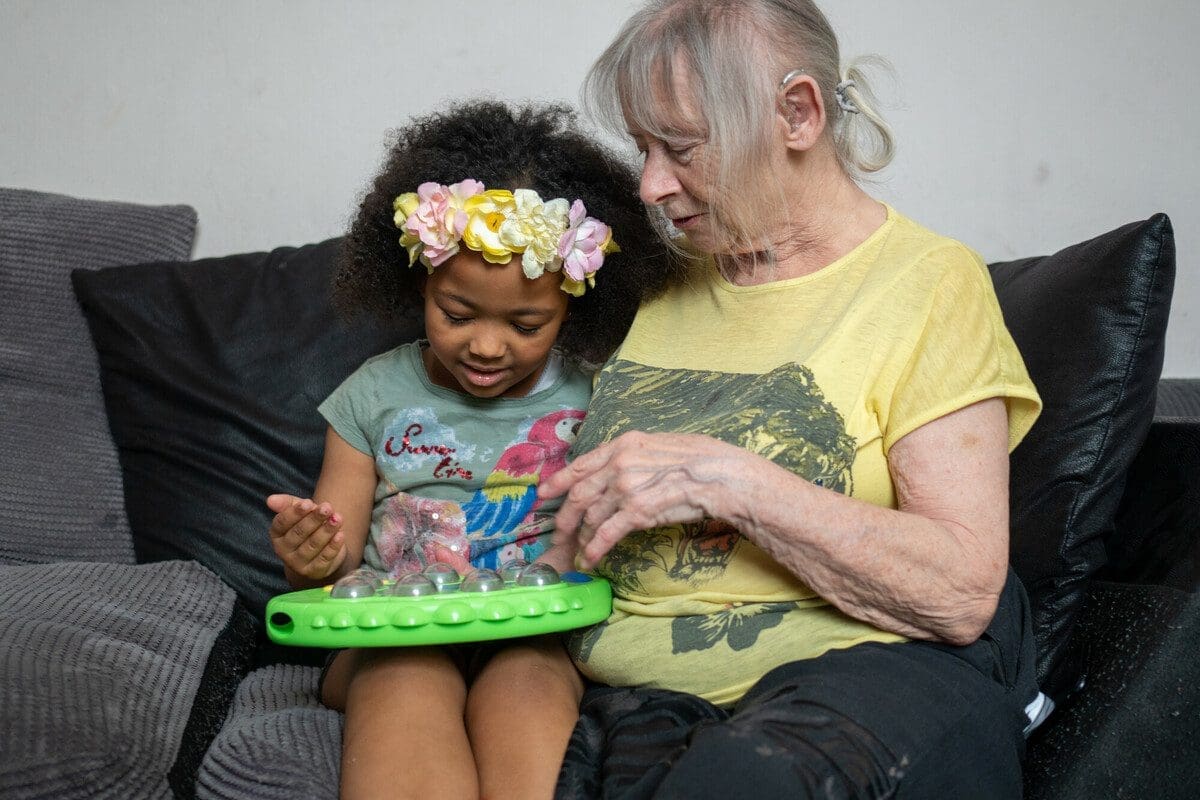
Young onset dementia
Information and resources about young onset dementia, where symptoms develop before the age of 65.
Deb became friends with Peter after a chance meeting in a cycle shop. Now firm friends, she has written two books about Peter and his young onset dementia.

Deb Bunt and Peter Berry with friend Theresa [left]
Suffolk-born Peter was diagnosed with young onset dementia aged 50. He had lost his timber business, he’d lost his driving licence, he was losing his autonomy: bit by bit, his world was being chipped away by Alzheimer’s disease. He and his wife, Teresa, were struggling to make sense of it all.
A chance meeting with Peter in our local cycle shop changed both of our worlds. To keep myself fit, I had always been a runner and a swimmer, but Peter, an avid cyclist, ignited a passion for cycling in me. We began to cycle together, and a friendship quickly formed.
I soon became aware that Peter’s attitude to his dementia was one of defiance. He told me that, after a period of depression and two suicide attempts, he had vowed to make the most of his time. He used his passion for cycling to raise funds for, and awareness of, young onset dementia. Peter’s activities included cycling from Aberystwyth to Aldeburgh on a road bike and cycling 300 miles across four counties on his penny farthing – an amazing achievement.
Although Peter was involved in a number of fundraising and awareness raising activities, he could not remember anything that he had done in any detail. His actions were, in his words, “Written in sand and needed to be set in stone.” So, it was left to me, aspiring author that I was, to do just that and the result, ‘Slow puncture, living well with dementia’ was published in September 2020. The themes in the book include friendship, shifting perspectives and renewed hope, not just for Peter but for others. We have recently published a second book, ‘Walk with me: musings through the dementia fog’ which is a compilation of Peter’s thoughts and poetry.
Although these books are about Peter, he will never read them due to his severe memory loss. As soon as he reads one sentence and moves onto the next, the first sentence unravels and quickly disappears. The fact that Peter cannot read the books demonstrates the trust he has in me to relay his story. I believe that it is the enduring power of friendship which has instilled that trust.
Peter cannot remember much about me, yet he feels the emotional bond of our friendship in his heart. I know a lot about Peter and yet, despite this apparent disparity, ours is not a one-sided friendship. There is a mutual reciprocity in our relationship. And our friendship has not only enabled me to achieve my life’s ambition to be published but has given me so much more. I now appreciate the key things in life – I try to live and enjoy the moment, I have found a new perspective and I will be forever grateful for this.
Our friendship has meant that Peter entrusted me with the key to his life and his feelings. By doing this he is still able to protect his wife Teresa, who is often ‘dementia’ed’ out. Without our friendship, Peter’s story would not be known. The story of a man from a village in rural Suffolk is being heard across the world. We have had podcasts made about us, articles written about us, and we have been on the radio and local television to share our story. We give talks to libraries, bookshops, financial institutions and social workers: the mission is to get the message out there about dementia and, particularly, to raise awareness of young onset dementia.
Peter says in his own inimitable way, that he stores our friendship in, “the vault in my heart which not even dementia can unlock.” Our friendship, quirky though it might be, was formed through a dementia diagnosis but it has grown into something very special and something which transcends the darkness of dementia.
Whilst reiterating that our cycling relationship functions on reciprocal support – I can neither mend a puncture nor read a map, nor indeed have any desire to do so (Peter is a master of both of these things), there are some things which I do to ensure our cycling experience goes smoothly and without undue stress:
These are simple techniques which make our rides smoother and trouble-free. They work well for us. These strategies have evolved as our friendship has developed. I’d encourage others to find similar techniques which work for them.

Information and resources about young onset dementia, where symptoms develop before the age of 65.

Help us raise vital funds, improve care and support for families facing dementia and spread the word about our specialist dementia nurses.

Sharing your story with Dementia UK can help to inspire and reassure others who may be going through similar things.